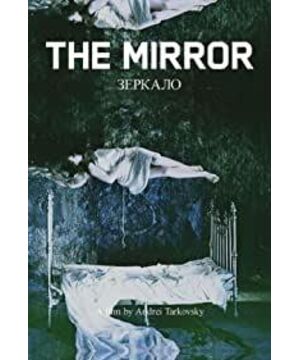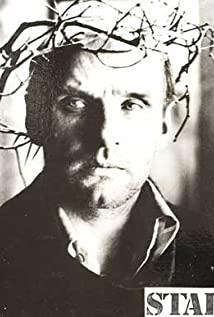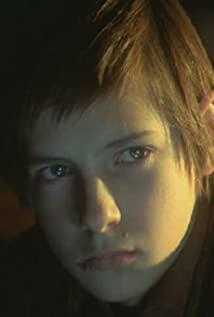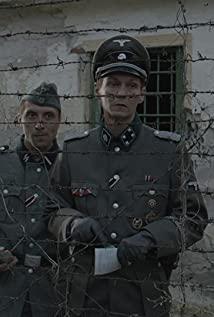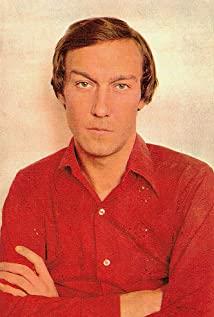"Mirror" (Mirror) in 1974 is the culmination of Tarkovsky's film career. It is an "author's film" that integrates documentary, autobiographical, news and historical facts and poetry. The most complete expression of Tarkovsky's film philosophy in his life.
Carving the imprint of time
recalls the mother, the love and guilt for the mother, the immortal memory and sympathy for the mother, the way how the mother shapes who I am today to commemorate the mother, the destiny of the mother’s life is used to interpret the memories and sentiments of childhood. The theme of "Mirror" and the richness of film forms and the diversity of artistic expression can be said to be an indispensable classic model for film research so far. Professor Li Yongquan, a Taiwanese scholar and an experienced researcher of Tarkovsky, pointed out: "The Mirror is an autobiographical film by Tarkovsky, but it is not just an autobiography. Tarkovsky combines images of different styles ( The combination of color, black and white, documentary, freehand, slow motion) and complex and diverse sounds (synchronized sound, out-of-picture sound, poetry sound, spatial sound), combines memory and recall, nightmare and historical facts, music and The poems are correspondingly interlocked, making the whole film the overall picture of spiritual dialogue and historical testimony, which is breathtaking."
In the movie, the "mirror" is of course not a reflector made of glass, but an abstract concept that is difficult to grasp with a single word or specific description. Maybe you can think of the mirror as an interface of time and space. It allows fragmented time and circulating space to pass through it to form a ignorant and lost childhood, a memory that keeps returning to the light after being far away; you can also think of the mirror as being A tortuous journey of spiritual reflection and introspection, but this refraction is not physical, reflected, or copied, but transformed into a naked confession and weeping through the erosion of years, the regeneration of memories, and the rebellion of morals. Bloody confession. This "interface" mirror is actually not smooth and shiny, but cracked or broken. What it reflects is not just the portrait of life, but the suffering of the soul, the stalemate of disappointment, and the endless melancholy. Compensatory regret, a love that is hard to recover. This mirror may not be single-sided but double-sided. Father, mother, and son stand on the two sides and edges of the mirror respectively. Everyone tries to see through the relatives behind the mirror, but they can only observe the distortion in the mirror. Others, the mentally disturbed mother is both in the mirror (memory of the past), but also seems to be outside the mirror, both living in the heart of the son and sealed in the thin surface of the mirror. The father is always vague and difficult to recognize, but he His abandonment, his alienation, and his frustration are all clear and defensible.
Maybe the mirror is not a mirror at all, but a broken web of memory. It loses the dignity and promise of life, but stops the solidified remembrance and confusion; maybe there is no mirror at all, and there is no reflection, because the mirror is not a specific person before, just Tarkovsky’s messy memories, a group, a section, a pile of memories looking in a mirror, or a mirror reflecting a group, a section, a pile of memories, maybe this is the existence of life, it is nothing but confusion no!
In contrast to Tarkovsky’s wish to "don’t look at "Mirror" too complicated", the audience’s irritation and complaints, which were transformed from understanding anxiety because they could not understand "Mirror", were projected on Tarkovsky. , The relationship between the director and the audience resembles a "mirror" and a "mirror". The audience hopes to use Tarkovsky as a mirror to see themselves, but what they see is their own failure and dullness. This is because people always lack the deep link of self-experience to realize the experience of others. This is because people always prefer to lose themselves rather than face others. Tarkovsky allowed his audience to see the misunderstanding of the self and the distortion of the self. In the film "Mirror", Tarkovsky categorically tore through the audience's habit of seeking identification, imitation, and resonance in movies. He cruelly divided the audience into self-disintegration, and he let the audience experience a kind of "spiritual "Peeling", facing an alternative life amid degeneration. Tarkovsky described the mirror as a "symbol", a symbol that is difficult to decode with general cognition, but for the audience, the mirror is not a symbol but a question mark. It is a "flat question mark" and part of it. The audience gave up all their doubts, and it was also an "upright question mark" that made some audiences understand that before entering Tarkovsky's world, they should first enter their own world.
Tarkovsky regards "Mirror" as a story of pure truth and completely his own, "a re-creation of the life of a person I love and acquainted with". He classifies himself as "creating his own inner world." director. From this point of view, it may be possible to regard "Mirror" as a process by which Tarkovsky reconstructs his inner world through the reorganization of memory, or, in other words, a "self-sculpture" of Tarkovsky, a kind of art. The birth of the main form.
Since it is its own story, it has a "time exclusively for the author" that can interfere, interrupt, reorganize, exchange, stretch or compress. Tarkovsky opposed Sergei Eisenstein's "montage" theory and replaced it with "time-pressure". Time pressure is a process of "carving time". Tarkovsky emphasizes the natural power contained in images. To master this natural power is to master the rhythm of time. This process is not just about editing or editing film technology, but shaping the "sense of time." The rhythm of time can be expressed in the gradual changes and transformations of natural scenery. It can be expressed as the "slow flow" of streams, the "swirling" of showers, the "turbulence" of rivers, the "sweeping" of waterfalls, and the "sweeping" of the ocean. Silence", using combined memories to capture the time stamp imprinted in the natural scenery, isn't it the "sculpture of time"? As a result, "sculpture, the sense of time," became the essence of Tarkovsky's artistic charm.
The existence that can't be fully spoken
Although "Mirror" is an autobiographical work, everyone who watches "Mirror" will get a mirror of his own, or he will feel sorry for himself, or think about it. Engraving the imprint of time! What an immense artistic ambition, and what a bitter self-challenge for the audience. For many people, and for many lost subjects who are in "trouble", the sorrows of older lives are no longer able to reorganize the original vivid childhood memories. The fragmentation of memories, the fragmentation of old people, the peeling of old houses, the fading of vegetation, and the life along the way are as heavy as a thin feather carrying a stone. As a result, memories are like drops of water scattered around, and they can only rely on sorrow and regret to form a string, and stitch them sparsely and wrinkly into a life-net cloth that has become disreputable. In a certain sense, the "forget" of existence is so far away from the "source" of existence. If we hadn't experienced the frustration and pain of life, how would we experience Tarkovsky's film language and the kind of "unpayable" The transcendent mood of "Speaking"? But we are still grateful, and there is still a vague sense of practicality, because Tarkovsky has created a "poetic image" narrative method, which is a kind of luck that passes through "transcendental mysticism" and then becomes completely forgetful. The "mirror of consciousness" brewed under the mirror. Under the kind of lens that is always light and slow, crystal clear and shining, melancholic and melancholic, like ice stars, cold moon, misty mountains and smoke, Tarkovsky creates a little like concentrated raindrops for people The small world makes people fall into the depression of emotion and the net of artistic conception of this small world, and it is difficult for the rabbit to escape.
In Tarkovsky's world, space has lost its boundaries, time has lost its trajectory, soul has lost transparency, and the body has walked out of itself. This is a world that can only be exchanged with mental resonance and emotion. Under Tarkovsky’s lens, imagery is no longer a simple representation, nor is it a simple representation, but a code of philosophy, a maze of wisdom, and a sculpture of life, making people even in contemplation. You can also feel the time imprints on the eye masks slippery, even in the shifting of objects, you can experience the generous and selfless reconciliation between the phenomenon and the essence, like the surprise of the exhibition before the painting, and the pure beauty of the kiss on the face. Tarkovsky’s lens is like a filter. It filters out all vulgar impurities, leaving only the spotless "primitive", a life essence that must be crossed with blood. It has the appeal to the world. The power of silence, time stop, and space fall, in the upward, downward, side-filling, and intuition of every lens, in the paintings of Da Vinci and the music of Bach, in the gloomy wilderness, the grief of mother , The burning house of fire, and the return of his father, the self-portrait in the mirror shows a kind of purity, a kind of pure and primitive tragedy.
The above excerpt is at http://www3.nccu.edu.tw/~gcsong/Andrei%20Tarkovsky.html
View more about Mirror reviews


